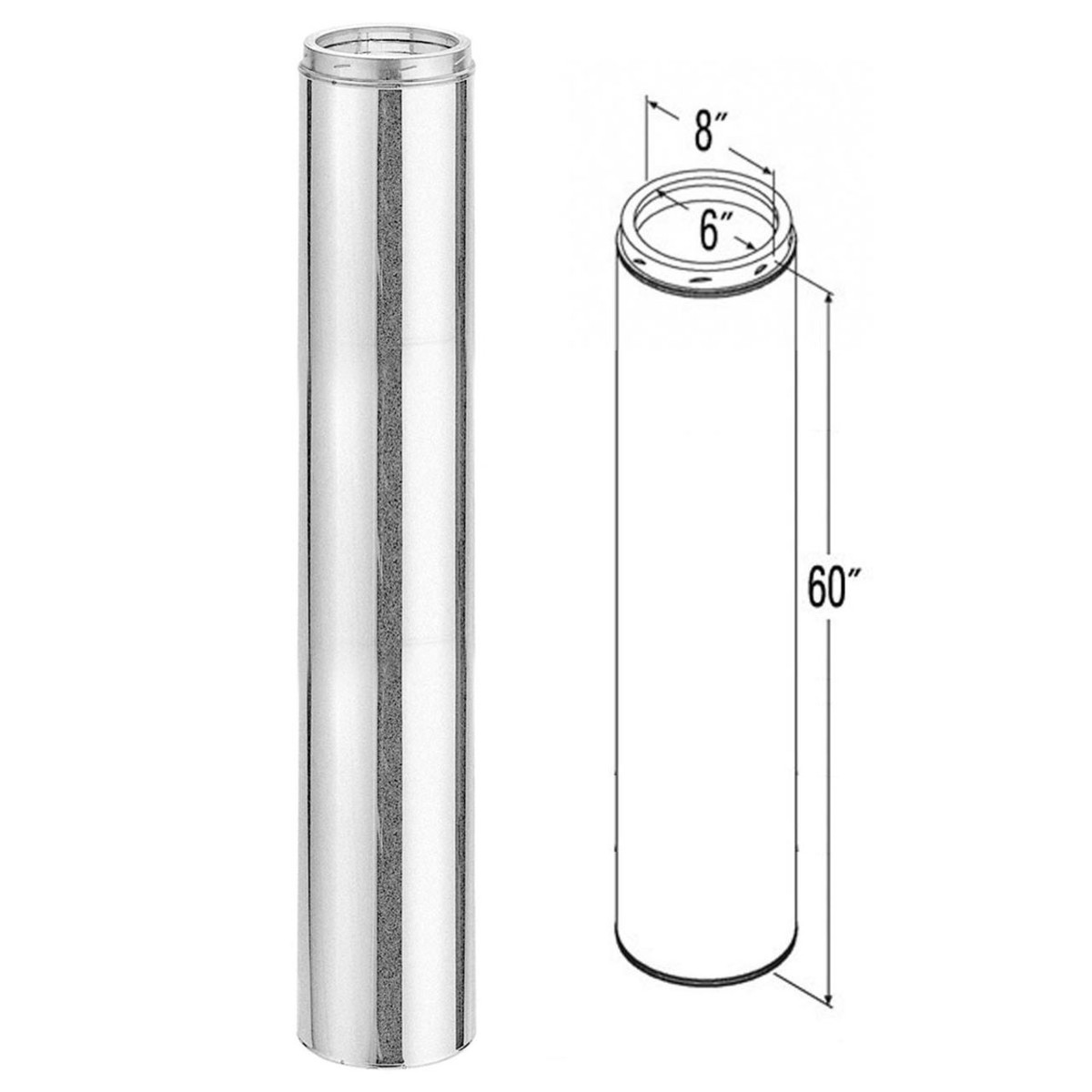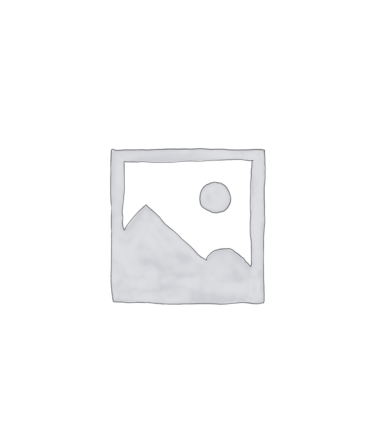6″ x 60″ DuraTech Galvalume Steel Chimney Pipe – 6DT-60CF
The purpose of chimney pipe is to remove harmful byproducts of the combusted, or burned, fuel from inside your home. If the byproducts are not properly ventilated from inside the home, then you can have a dangerous buildup of carbon monoxide.
DuraTech is a double-wall, all-fuel chimney system for use with wood stoves, fireplaces, furnaces, boilers, ranges, water heaters, or other appliances fueled by wood, oil, coal, or gas, and zero-clearance fireplaces that are factory-built.
DuraTech chimney pipe is designed with a thermal tech blanket insulation encased between dual walls, DuraTech offers the optimum in safety and performance. It keeps the outer wall of the chimney cool while ensuring high flue gas temperatures for optimum draft performance. The inner wall is 25% thicker than competitive chimneys for an extra margin of safety. No locking bands or mechanical fasteners required. DuraTech’s sleek 1″ wall design provides for easy installations through 16″ on-center framing. For tight installations, a Reduced Clearance Square Ceiling Support Box is available (6″ diameter DuraTech only). Designed for normal, continuous operation at 1000°F flue gas temperatures, DuraTech is subjected to rigorous and stringent high temperature requirements of the UL standard, including one hour at 1400°F, plus three ten-minute chimney fire tests at 2100°F.
Product Note: Allow a 2″ clearance to combustibles when installing a DuraTech Chimney.
See all 6″ DuraTech Chimney Pipe Products
Need more information? Explore our Educational and Technical Chimney Pipe Resources
Specifications:
- Inside Diameter: 6″
- Outside Diameter: 8″
- Construction Material: Inner wall of .020″ 430 stainless steel, Outer wall .021″ galvalume steel
- Clearance: 2″ clearance to combustibles
- Listings: c-UL-us Listed to UL 103 and ULC S604 (MH7399)
- Stainless Steel outer wall required for installation in Canada
- Twist-lock connection
How it works:
The chimney system allows your stove or fireplace to exhaust flue gases while a draft creates the draw that pulls fresh combustion air into the stove. A well-balanced system provides an even, hot fire when it has good draft. The draft suction keeps smoke from coming into the room. Insulation in the chimney pipe is important because it helps keep the exhaust hot until it is expelled outside. Heat in the chimney makes draft, which pulls in more combustion air. This creates a hotter fire, delivering more heat to the chimney, resulting in more draft. The size of the flue is important for the system to work efficiently. The appliance manufacturers installation instructions will indicate how to size the flue to match the stoves flue collar. Stovepipe connects to the stove. It is the usually black interior pipe that transitions from the stove to the chimney pipe with an adapter. It is not insulated and cannot penetrate ceilings or walls. Chimney pipe is an insulated pipe that is rated to pass through walls and ceilings. In addition to the chimney pipe, supports to hold the system in place, and shields to protect areas from combusting, are needed for the system. The flashing, storm collar and chimney cap are required to seal the system from moisture penetration.
All stove and chimney pipe are classified and categorized by the inside diameter. If you are not sure what size you need, measure the inside of your flue opening across inside to inside. If your measurement is 6″ then you will purchase all 6″ pipe for your installation. We offer DuraTech ranging in sizes from 5″ all the way up to 24″ in inside Diameter. Your outside diameter with DuraTech will be 2″ larger than the inside.
What is the difference between chimney pipe and stove pipe?
Many confuse the terms. Stove pipe is usually painted black galvanized steel and is used in the interior on the home until you transition through a wall or ceiling then class A chimney pipe is used thereon. Stove pipe, black pipe, single wall pipe all refers to the same thing. Chimney pipe, class A pipe, triple-wall pipe, and insulated pipe all refers to class A chimney pipe.
What is class a chimney pipe?
Class A chimney pipe has many names, often referred to as double-wall chimney pipe, triple-wall chimney pipe, all-fuel pipe, or insulated chimney pipe. Class A pipe is used to vent high-temperature exhaust released from wood, coal, and oil-burning appliances such as fireplaces, stoves, boilers, and furnaces.
Not every venting system requires a Class A pipe, but it is necessary for use with all wood-burning fireplaces and stoves.
Class A chimney pipe is UL-listed, which permits its use with a range of different vent pipe manufactured by other fabricators and an even wider variety of fireplaces, stoves, inserts, and furnaces. However, it is important to note that you should never mix-and-match different brands of Class A chimney pipe within one chimney system unless specifically allowed by the manufacturer. The different brands of pipe are all distinctly engineered and must be used as a complete system from beginning to end.
If you are looking to extend or redesign your current chimney system, you need to know the make and model of your existing Class A pipe and purchase the same type, if possible. Unfortunately, if your existing make and model of pipe is a discontinued or obsolete brand, you will likely need to completely reinstall your chimney system.
For any additional information, remember to check out the Resources and Help Articles on our page!
 WARNING: This product can expose you to chemicals including Chromium, which is known to the State Of California to cause cancer and birth defects or other reproductive harmFor more information go to http://www.P65Warnings.ca.gov.
WARNING: This product can expose you to chemicals including Chromium, which is known to the State Of California to cause cancer and birth defects or other reproductive harmFor more information go to http://www.P65Warnings.ca.gov.
Specifications:
- Diameter: 6″
- Construction Material: Inner wall of .020″ 430 stainless steel, Outer wall .021″ galvalume steel
- Clearance: 2″ clearance to combustibles
- Listings: c-UL-us Listed to UL 103 and ULC S604 (MH7399)
- Stainless Steel outer wall required for installation in Canada
- Twist-lock connection




Reviews
There are no reviews yet.